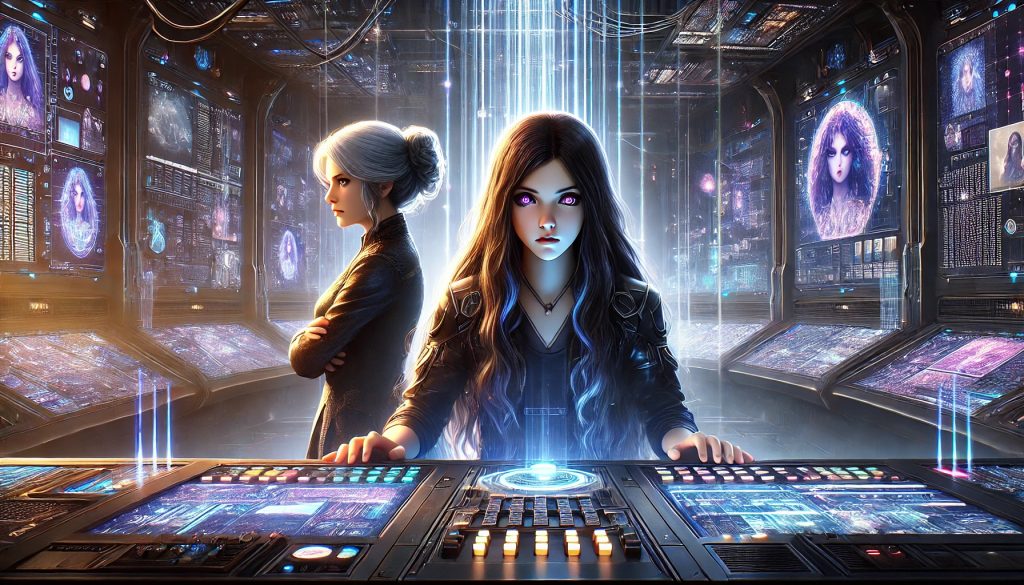In the thought-provoking novel “The Emotion Collector,” we’re confronted with a chilling question: What if our emotions could be controlled, regulated, or even eliminated? While this may seem like pure science fiction, advances in neuroscience and psychology are bringing us closer to a reality where emotional control is not just possible, but potentially implementable on a societal scale. This raises profound ethical questions that we must grapple with.
At first glance, the idea of emotional control might seem appealing. Imagine a world without the pain of heartbreak, the paralyzing grip of anxiety, or the destructive force of unchecked anger. A world where rational thought always prevails, unmuddied by emotional impulses. It’s a tempting proposition, especially in a world that often seems chaotic and unpredictable.
However, as “The Emotion Collector” vividly illustrates, our emotions are not simply inconvenient obstacles to be overcome. They are an integral part of the human experience, shaping our decisions, our relationships, and our very identities. The ability to feel deeply – both joy and sorrow – is what gives life its richness and meaning.
Moreover, emotions play a crucial role in our moral and ethical decision-making. Empathy, compassion, and a sense of justice are all rooted in our emotional capabilities. Without these, would we still make choices that benefit others, often at a cost to ourselves? Would concepts like human rights or social justice still hold meaning in a world of pure rationality?
The ethics of emotional control also raise questions of autonomy and free will. If our emotions can be externally regulated, are our thoughts and actions truly our own? There’s a fine line between helping people manage destructive emotions and fundamentally altering who they are as individuals.
Another critical consideration is the potential for abuse. In the wrong hands, the ability to control emotions could become a powerful tool for manipulation and oppression. Imagine a government that could suppress dissent not through force, but by simply dialing down feelings of anger or injustice among its population. The implications for democracy and human rights are staggering.
There’s also the question of unintended consequences. Our emotions have evolved over millions of years, finely tuned to help us navigate complex social environments and respond to threats. By tampering with this delicate system, we risk throwing off balances we don’t fully understand, potentially leading to unforeseen psychological or societal issues.
That said, research into emotional regulation isn’t inherently unethical. There are undoubtedly individuals suffering from emotional disorders who could benefit from more effective treatments. The key lies in how such technologies are developed, regulated, and applied.
As we move forward, it’s crucial that we approach the field of emotional control with caution, transparency, and robust ethical oversight. We must prioritize individual autonomy, ensuring that any interventions are voluntary and reversible. We need to have open societal discussions about the implications of these technologies before, not after, they become reality.
Ultimately, like the characters in “The Emotion Collector,” we may find that our emotions, with all their messiness and unpredictability, are not a weakness to be controlled, but a fundamental part of what makes us human. The challenge lies not in eliminating our emotions, but in understanding them better, learning to express them healthily, and using them as a guide to lead richer, more connected lives.
In navigating this complex ethical landscape, perhaps our most important tool will be the very thing we’re discussing: our ability to feel, to empathize, and to care deeply about the world and people around us.
In conclusion, the ethics of emotional control present us with a complex dilemma. While the potential benefits of regulating destructive emotions are tempting, we must carefully weigh these against the risks to individual autonomy, societal freedom, and the very essence of human experience. As we continue to advance in neuroscience and psychology, it’s crucial that we engage in open, thoughtful dialogue about these issues. The future depicted in “The Emotion Collector” serves as both a warning and a call to action, reminding us of the precious nature of our emotional lives and the importance of protecting our right to feel. As we move forward, let us strive for a world where emotions are understood and valued, rather than controlled or suppressed.

